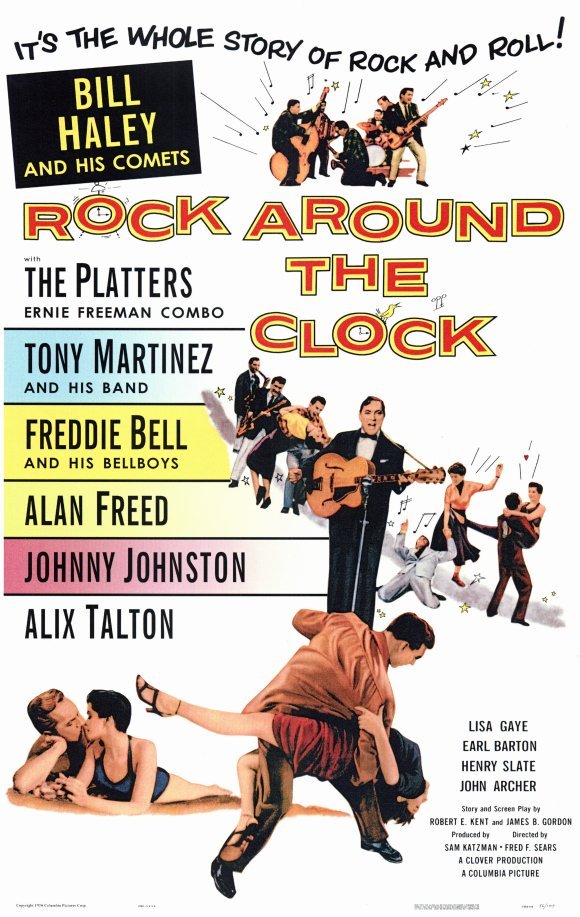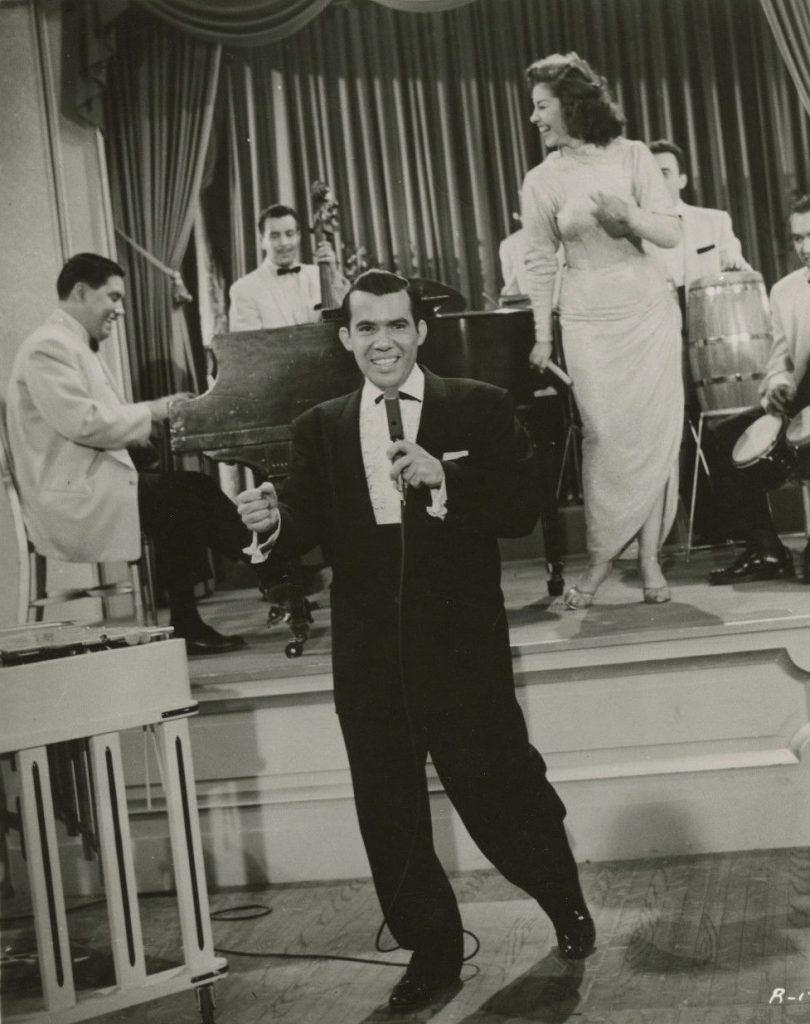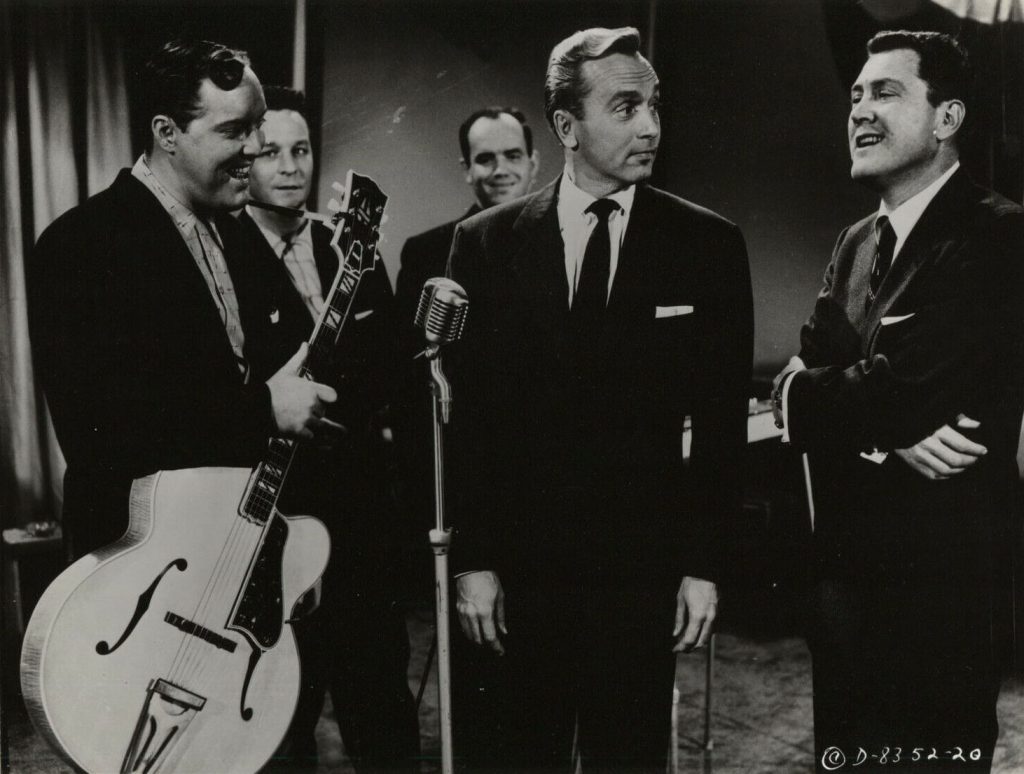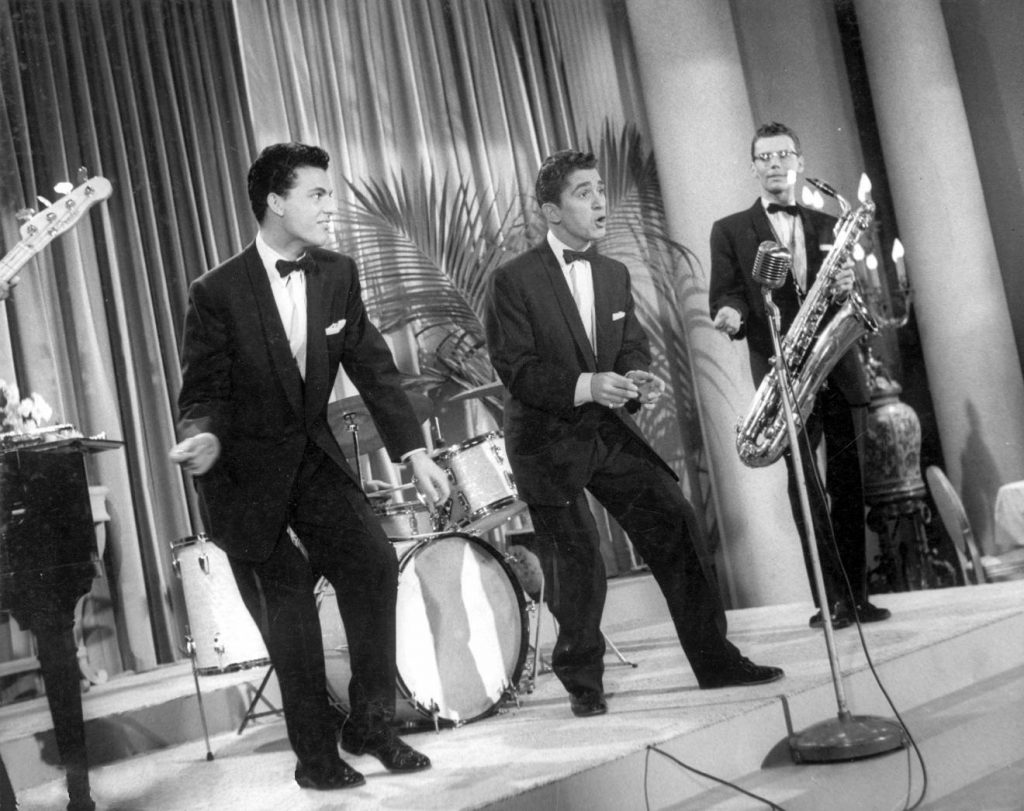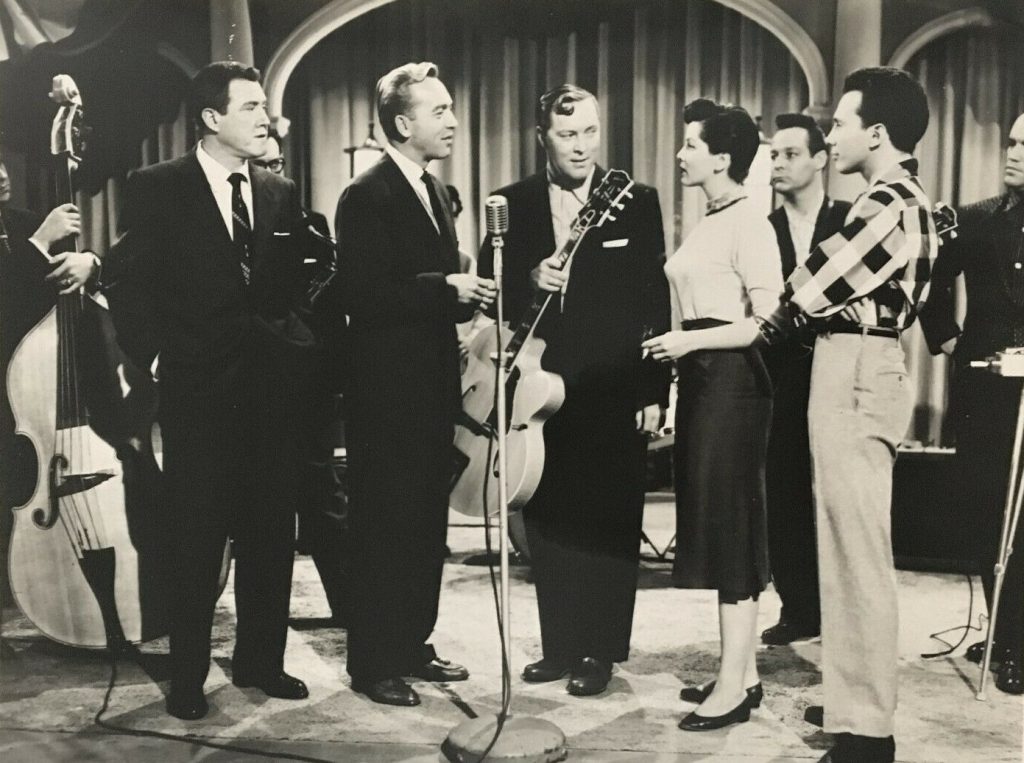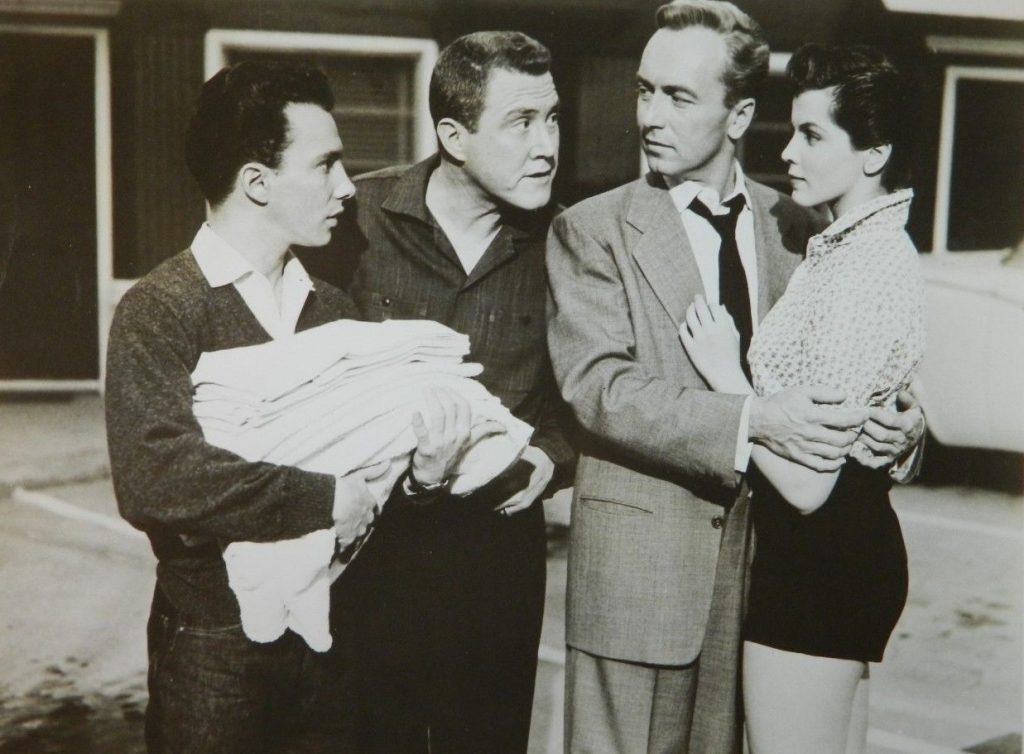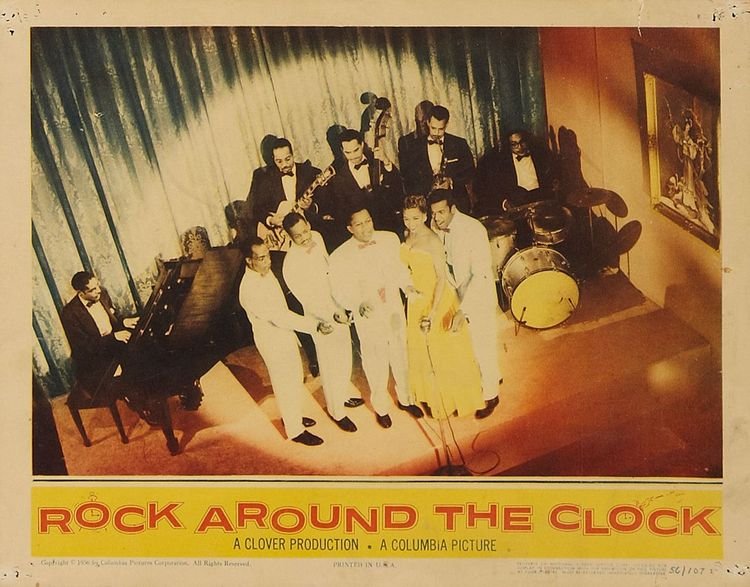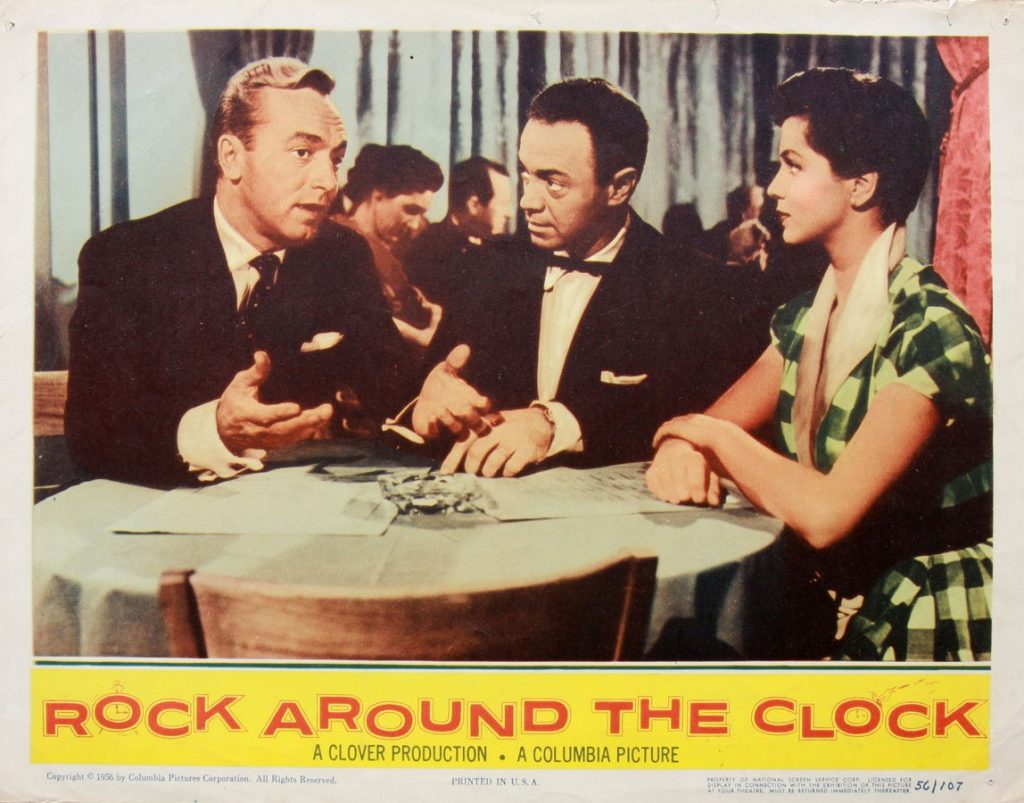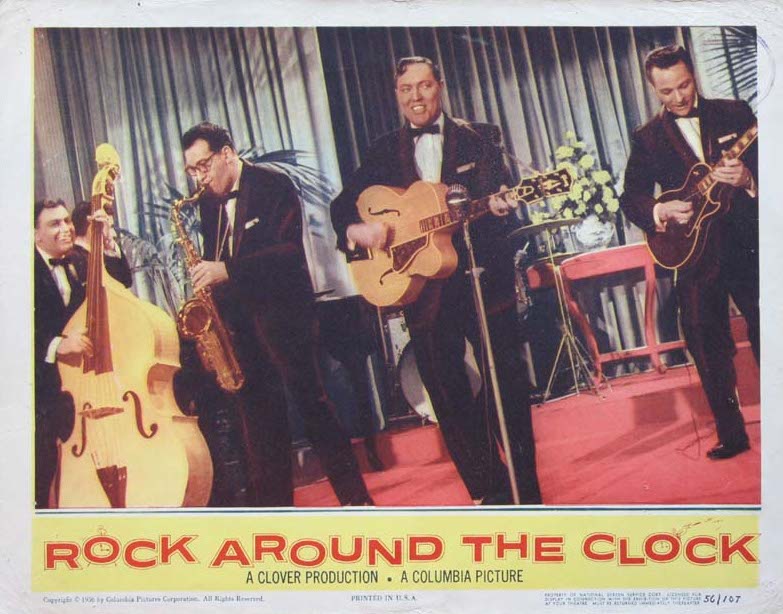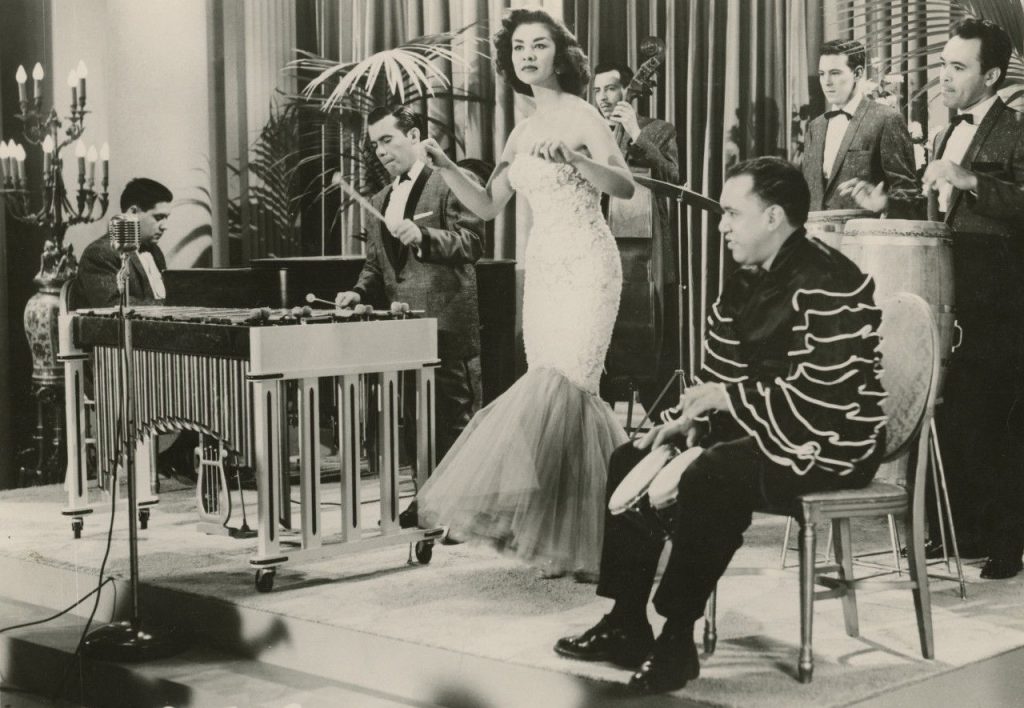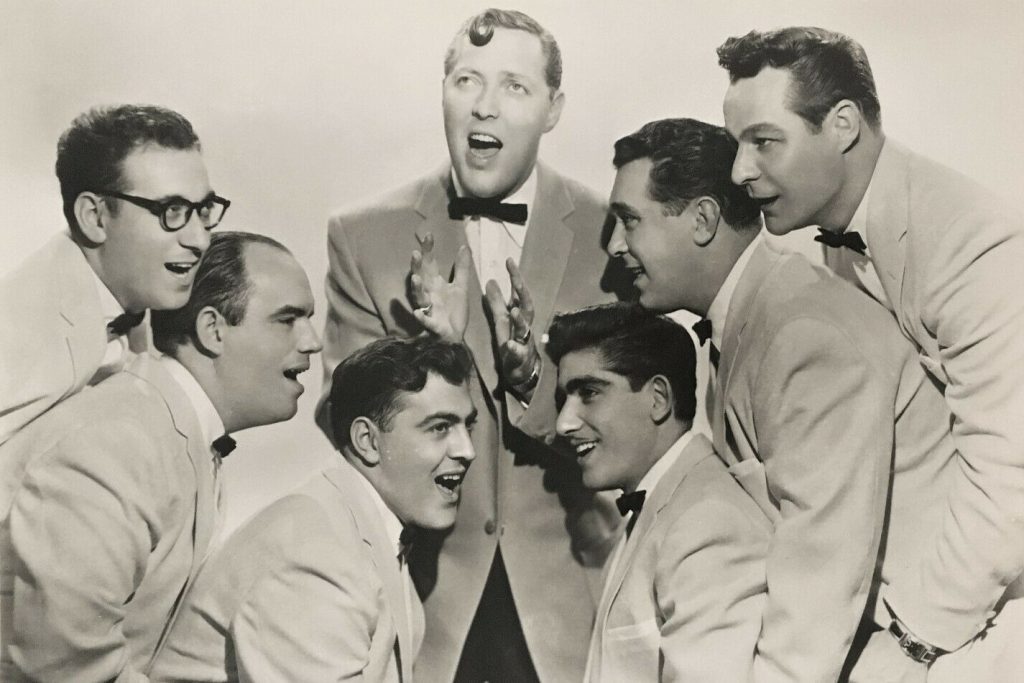
Rock Around the Clock (USA, 1956) 77 min B&W DIR: Fred F. Sears. SCR: Robert E. Kent, James B. Gordon. PROD: Sam Katzman. DOP: Benjamin H. Kline. CAST: Alan Freed, Johnny Johnston, Alix Talton, Lisa Gaye, John Archer, Henry Slate, Bill Haley and His Comets, The Platters, Ernie Freeman Combo, Tony Martinez and His Mambo, Freddie Bell and His Bellboys.(Columbia)
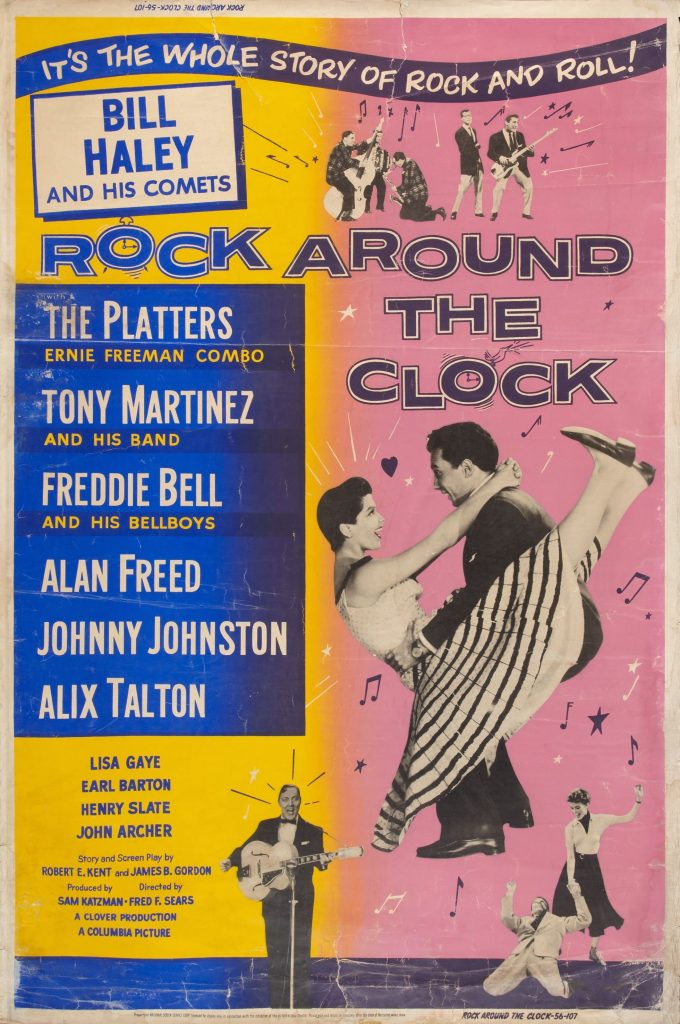
It is often thought that WINS disc jockey Alan Freed, with the on-air monicker of “Moondog”, was the first to use the term “Rock and Roll”, in promoting a 1954 “Rock and Roll Party”, to describe this strange new music that was sweeping through the country. This term was originally a Harlem phrase to describe sexual intercourse, but Freed appropriated it into a catch-all phrase for the different kinds of music that made up this new sound: rhythm and blues, jive, and swing, to name a few. The first official “rock and roll movie” was 1955’s The Blackboard Jungle, which featured Bill Haley’s “Rock Around the Clock” in the opening credits, and in a way confirmed the old generation’s fears that rock and roll would be synonymous with juvenile deliquency. Meanwhile, Freed’s revue shows were becoming huge draws, and Hollywood saw fit to further capitalize on this musical phenomenon. Since Freed already proved himself the showman on the airwaves and on stage, it was only natural that someone would come knocking to feature him in a movie. Sam Katzman, a veteran producer then working for Columbia’s B-unit, saw in Freed a new form of low-cost, high-yield kind of exploitation.
Over three years, Freed would play himself in five pictures, which had little plot. This picture would be followed by: Don’t Knock the Rock (1956), Rock, Rock, Rock!(1956), Mister Rock and Roll (1957), and Go, Johnny, Go! (1959).
Freed by the way, detested what The Blackboard Jungle stood for. His films are certainly not as exploitive as other teen pictures of the time: they are the rare films to portray rock loving youths as something other than juvenile delinquents, and yet they are free of the saccharine in “clean teen” pics like Gidget. Seen today, the Freed pictures are invaluable documents of rock and roll history.
Rock Around the Clock, the first Alan Freed-Sam Katzman affair, fittingly features Bill Haley in a far more flattering portrait of rock loving teenagers than Haley’s previous film credit, even though they’re played in this film by twenty-something actors who use interjections like “fab”, “crazy” “real gone”, and nouns like “Daddy-O” every other sentence. (Of course, all the teenage characters in these 50s movies were played by 35-year-olds; part of their charm.)
In the opening, we see that swing, one of rock’s ancestors is nearly dead. George Hiller’s swing band is playing to nearly empty dance halls. The band’s manager Steve Hollis (Johnny Johnston) is losing bookings, and when he gets fired from an irate Hiller, bassist Corny (Henry Slate) comes in tow- “I know a funeral when I see one.”
This duo happens upon the town of Strawberry Shortcut (ho-ho) and wanders into a dance hall featuring Bill Haley doing “See You Later Alligator”. “What is that outfit playing? It isn’t swing, jive or boogie- it’s kind of like all three,” Hollis muses. A teenager tells them it’s called rock and roll. Knowing the next big thing when he sees it, he decides to book not only Haley, but the sibling dancing duo of Lisa and Jimmy Johns, to take on the road to New York.
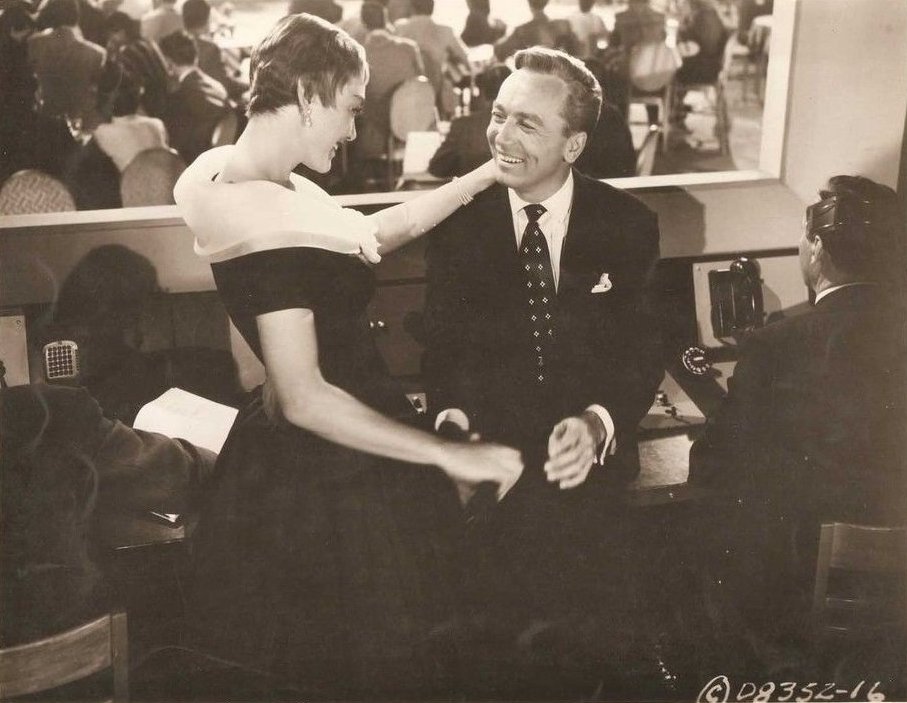
There, he deals with ruthless talent agent Corinne Talbot (Alix Talton), who books the new talent, if only to try and woo Steve. And to keep 40-year-old Steve away from Lisa (played by 20-year-old Lisa Gaye), she even signs her, with a stipulation that she doesn’t marry while under contract. The things this woman doesn’t do for love. She even goes to a rock and roll revue with Steve, hears Bill Haley doing “Razzle Dazzle”, and expects to be thrown out! Steve has the foresight to tie together the rock and roll acts into a revue, which also includes Freddie Bell and the Bellboys (“We’re Gonna Teach You to Rock”), and even the Latin act Tony Martinez decides that the cha had been taken out of their cha cha’s long ago, so they pep their act up with “Bacalao Con Papa.”
Alan Freed is essentially a special guest star in his own movie, as he appears midway, introducing The Platters with “Only You”. Soon, he incorporates Steve’s revue, and before you know it, the unlikely rock and roll star, checked-shirt farmboy Bill Haley is all over “Variety”.
All of the Freed pictures in some way reduce the stigma of rock and roll. In this case, we see that the music has revitalized old forms by combining them into something new. Under its umbrella, swing, Latin and bebop has been forged into an exciting new sound. Check out the sax solo by Bill Haley’s sideman Rudy Pompilli during “Rudy’s Rock”: jazz has arrived in the bobby sox world.

